Kinhtedothi - On the morning of November 14, the Hanoi Party Committee, People's Council, and People's Committee coordinated with the Editorial Board of the Communist Magazine to organize a scientific workshop "Implementing the Capital Law No. 39/2024/QH15: Some theoretical and practical issues".
Attending the workshop were Associate Professor, Dr. Le Hai Binh - Alternate member of the Party Central Committee, Editor-in-Chief of Communist Magazine; Permanent Deputy Secretary of the Hanoi Party Committee Nguyen Van Phong; Vice Chairman of the Hanoi People's Council Pham Qui Tien; Deputy Head of the Hanoi National Assembly Delegation Pham Thi Thanh Mai.
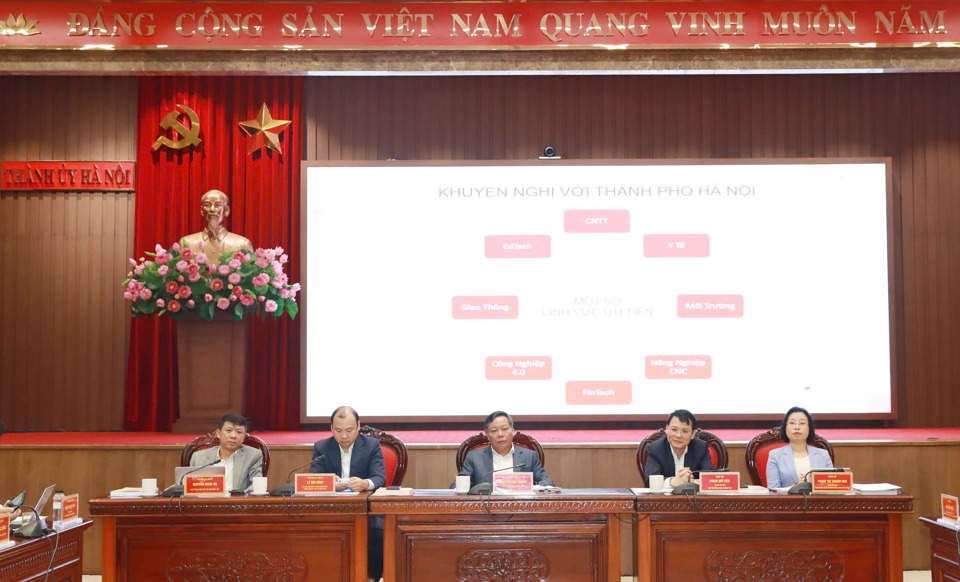
Unblocking legal framework for sustainable and modern development of Hanoi Capital
Speaking at the workshop, Associate Professor, Dr. Le Hai Binh said that on June 28, 2024, the 15th National Assembly passed the Capital Law (Law No. 2024/QH15). The Law will take effect from January 1, 2025. The Law consists of 7 chapters and 54 articles (an increase of 3 chapters and 27 articles compared to the 2012 Capital Law), closely following the 5 guiding viewpoints on drafting the draft and 9 policy groups decided by the National Assembly with many new contents, aiming at strong decentralization and delegation in all fields, along with many specific and outstanding policy solutions, suitable to the practical situation and development orientation of the country and the capital Hanoi in the new period.
The workshop received 62 articles from authors who are scientists, leaders, and managers at all levels on many topics and different aspects of implementing the 2024 Capital Law.
The Law on the Capital 2024 was issued to meet the goals set out in the Resolution of the Politburo on the direction and tasks of developing the Capital Hanoi to 2030, with a vision to 2045. The Law was issued to stipulate the principles of management, protection and development of the Capital Hanoi, creating a legal foundation for building Hanoi into a civilized, modern and sustainably developed urban area.
This is a law of special significance because Hanoi is an important political, administrative, cultural and economic center of the whole country. The Capital Law has removed many administrative barriers, removed bottlenecks, met the increasing development needs of Hanoi in the context of rapid urbanization, and at the same time opened up legal framework for the capital city of Hanoi to develop sustainably and modernly.
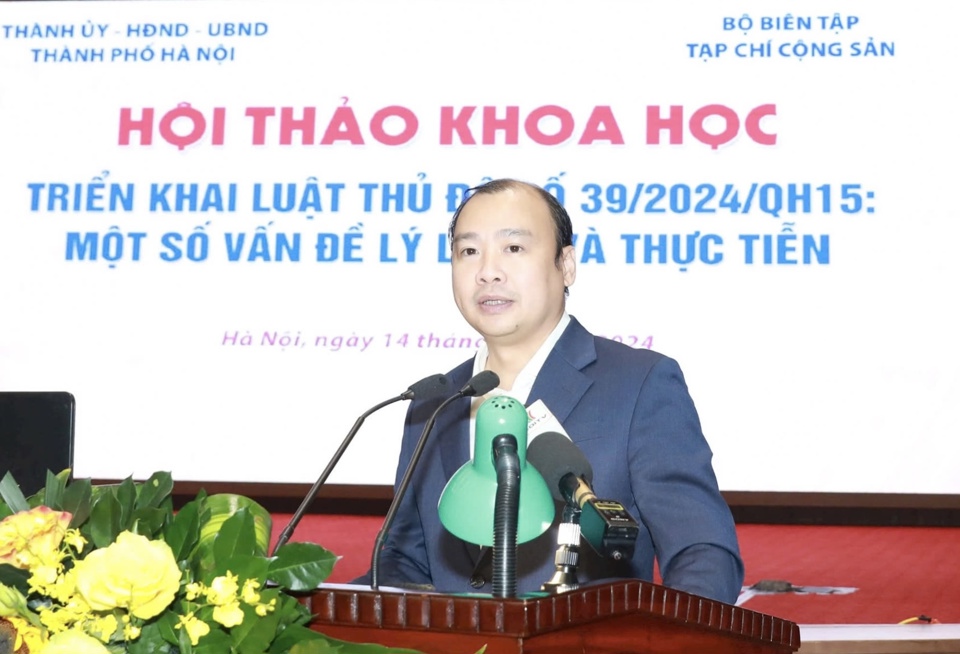
The workshop is part of a series of activities to implement the Capital Law of Hanoi city in the recent time since the Law was passed. The City People's Committee has issued Decision No. 4279/QD-UBND on the establishment of a Working Group and a Working Group to assist in the implementation of the Capital Law, focusing on three main tasks: Directing the implementation of the Capital Law; coordinating with ministries and branches in related work and coordinating the implementation of the law in parallel with the Capital Master Plan.
Specifically, focus on bringing the Capital Law into life, making good use of special and outstanding mechanisms to develop, review, and propose to perfect current legal regulations; deploy strategic solutions to implement the Capital Law, propose support for green transport infrastructure and smart cities; prioritize environmental solutions and sustainable development; build a roadmap for relocating vocational education facilities; build a policy for developing high-quality education; build an international standard emergency system...
According to Associate Professor, Dr. Le Hai Binh, the workshop was organized to clarify theoretical and practical issues promoting the promulgation of the Capital Law (Law No. 2024/QH15); to promote awareness of the significance and role of the Capital Law in the construction and development of the Capital; to identify the Capital Law in the new context, new conditions, and to analyze the opportunities and challenges in implementing the Capital Law.
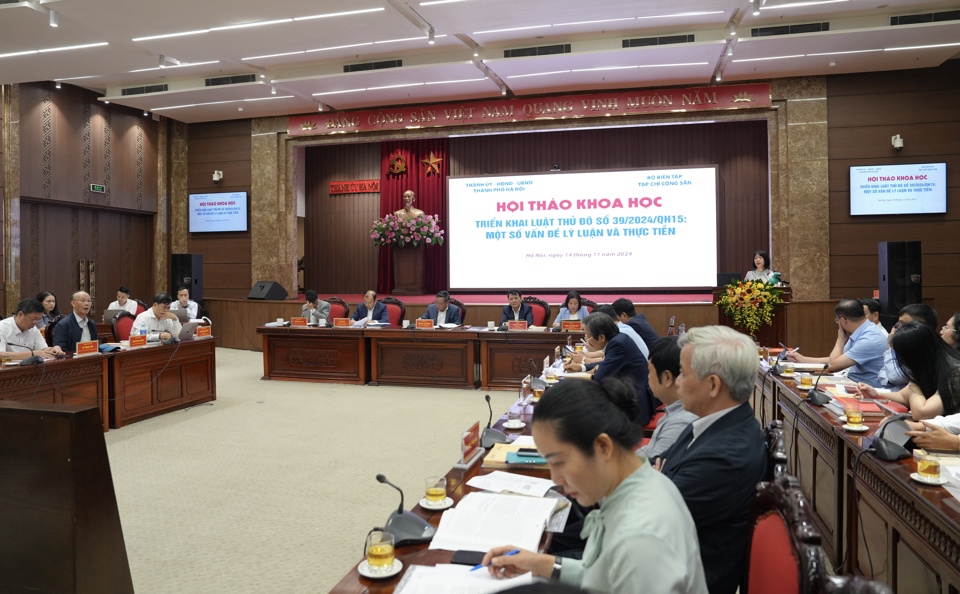
Along with that is the roadmap, responsibility, coordination of all levels, sectors and localities in implementing the Capital Law to implement the Capital Law in specific fields and contents. Proposing a number of solutions to organize the implementation of the Capital Law to ensure timeliness, synchronization, unity, effectiveness, efficiency, maximizing potential, strengths, and most effectively using resources to develop the Capital in the current situation.
Removing "bottlenecks", promoting the capital's rapid and sustainable development
To achieve the above goal, Associate Professor, Dr. Le Hai Binh suggested that delegates focus on clarifying some key contents. First of all, it is necessary to implement the Law on the Capital in a timely manner. Thereby, creating opportunities for the capital Hanoi to have "opening" policies, breakthroughs, and superiority in the economic and social fields. Proposing to build a system of documents, regulations, and solutions to specify specific and outstanding mechanisms and policies to promote the rapid and sustainable development of the capital, contributing more to the cause of national development.
At the same time, it emphasizes the feasibility, consistency, and synchronization with the current system of policies and laws of the country, while clarifying the outstanding mechanisms and policies for the Capital. This is the decisive factor for the Capital Law to soon come into life, overcoming the shortcomings and limitations of the implementation of the Capital Law in the previous period.
In particular, unifying ideology, creating consensus among cadres, party members and people of Hanoi Capital in implementing the Law on the Capital; stating possible legal problems, "bottlenecks" that need to be recognized, thoroughly understood and unanimously resolved... in the process of implementing the Law on the Capital.
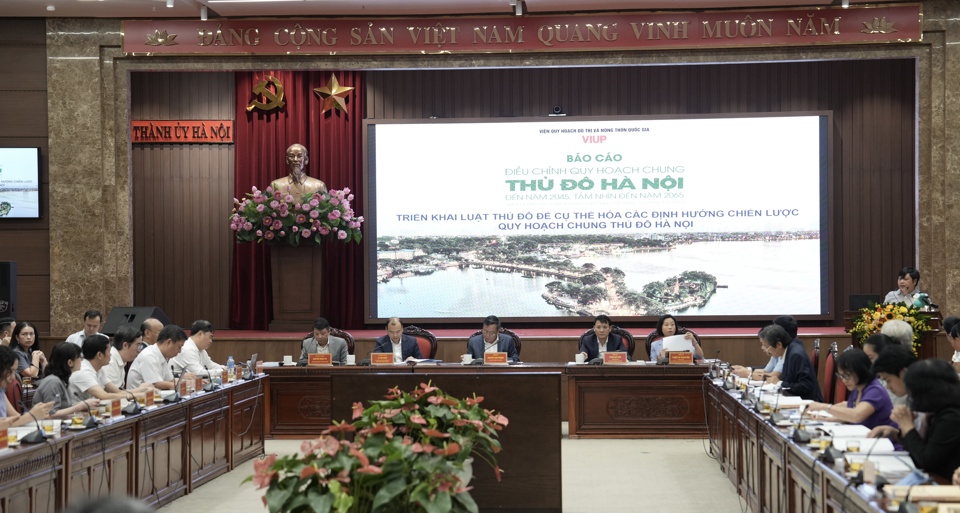
According to Associate Professor, Dr. Le Hai Binh, from international experience, it is suggested for Hanoi to apply mechanisms and policies suitable to the position, role and functions of the Capital as prescribed in the 2013 Constitution; helping the Capital to more effectively and clearly perform its functions and tasks not only as the national political and administrative center, but also as a major center of economy, culture, education and training, science and technology and international integration; there is a comparison between the Law on the Capital and some laws of the Capitals of some countries in the world.
Associate Professor, Dr. Le Hai Binh emphasized the requirements for governance and development for Hanoi - a capital with a large population compared to the capitals of other countries in the world, of a country with a very large population, with an economy in the process of rapid development. From there, many new mechanisms and policies were proposed, some of which have not been stipulated in the Law on the Capital, suggesting further research to perfect the law on the Capital. Many mechanisms and policies proposed in the discussions are consistent with the development trend of the times, consistent with the orientation in the draft Political Report of the 14th National Party Congress and the guiding viewpoint of the General Secretary of the Party Central Committee.
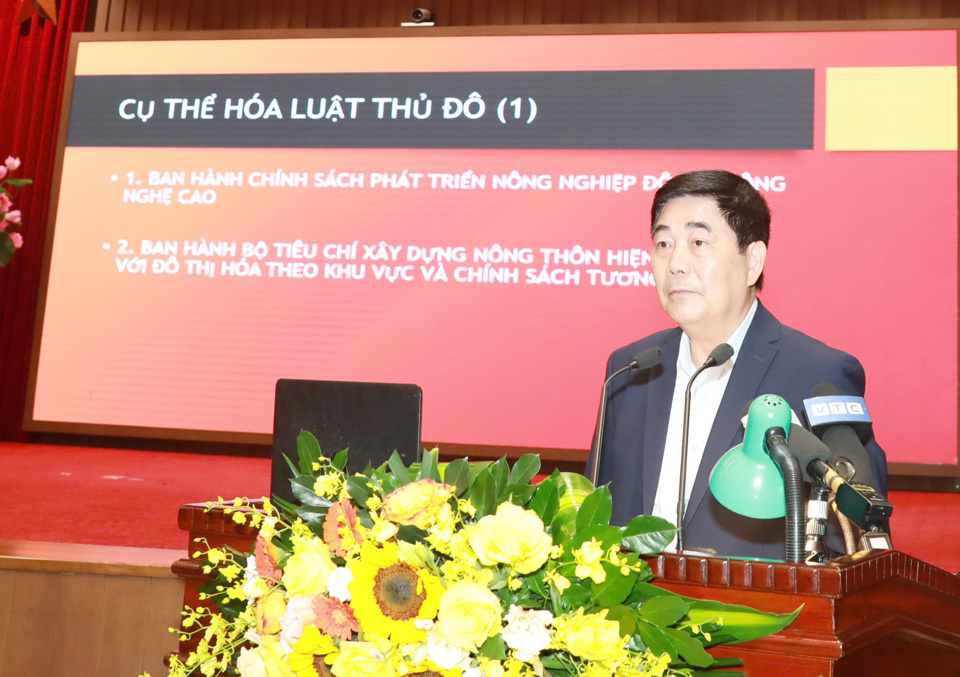
“The development of a system of documents to implement the 2024 Capital Law is also concurrent with the process of developing major policies and development orientations for the country. Therefore, the articles also raise many issues that need further research to contribute to the country's major institutions and policies that have not been mentioned in the Capital Law,” Associate Professor, Dr. Le Hai Binh emphasized.
Five groups of issues contributing to the implementation of the Capital Law 2024
The Organizing Committee of the Conference received more than 60 articles and reports from central ministries, branches, experts, scientists, departments and branches of Hanoi City. The presentations focused on clarifying the following groups of issues:
The first group of issues: Based on the Law on the Capital, the articles have proposed to build a system of documents, regulations, and solutions to specify specific and outstanding mechanisms and policies to promote the rapid and sustainable development of the Capital, contributing more to the cause of national development.
The second group of issues: From the summary of practice and experience in implementing the 2012 Capital Law in the recent past, the articles have proposed solutions, mechanisms and specific policies in all areas; at the same time, they have emphasized the feasibility, consistency and synchronization with the current system of policies and laws of the country, and clarified the outstanding specific mechanisms and policies for the Capital. This is the decisive factor for the Capital Law to soon come into life and have feasibility and practical value, overcoming the shortcomings and limitations of the implementation of the Capital Law in the previous period.
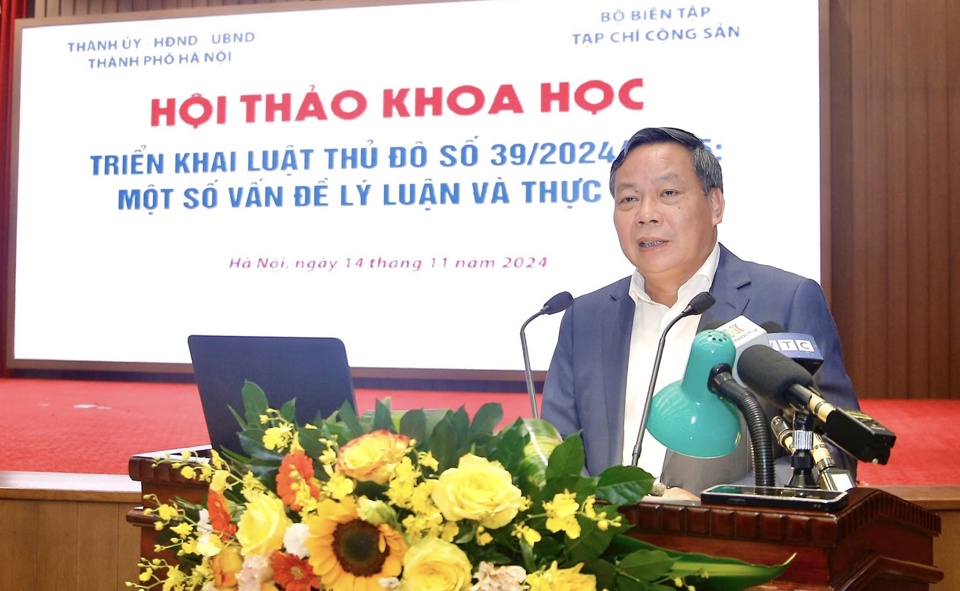
Third group of issues: From international experience, the articles have suggested to Hanoi the application of mechanisms and policies suitable to the position, role and functions of the Capital as prescribed in the 2013 Constitution; helping the Capital to more effectively and clearly perform its functions and tasks not only as the national political and administrative center, but also as a major center of economy, culture, education and training, science and technology and international integration; there is a comparison between the Law on the Capital and some laws of the Capitals of some countries in the world.
Fourth group of issues: Based on analysis and research of the international and national situation, many papers have mentioned the requirements for governance and development for Hanoi - a capital with a large population compared to the capitals of other countries in the world, of a country with a very large population, and an economy in the process of rapid development.
From there, many new mechanisms and policies were proposed, some of which have not been stipulated in the Law on the Capital, suggesting further research to perfect the law on the Capital. Many mechanisms and policies proposed in the discussions are consistent with the development trend of the times, consistent with the orientation in the draft Political Report of the 14th National Party Congress and the guiding viewpoint of the General Secretary of the Party Central Committee.
The fifth group of issues: The development of a system of documents to implement the Law on the Capital City is also concurrent with the process of developing major policies and development orientations for the country. Therefore, the articles also raise many issues that need to be further researched to contribute to the major institutions and policies of the country that have not been mentioned in the Law on the Capital City. The articles of the Workshop do not only stop at concretizing and implementing the Law on the Capital City, but also suggest ways to contribute more opinions to the policies and orientations in institutional reform and perfecting the legal system of the country in the new period.
Source: https://kinhtedothi.vn/tao-co-hoi-de-thu-do-ha-noi-co-cac-chinh-sach-mo-duong-dot-pha.html


![[Photo] General Secretary concludes visit to Azerbaijan, departs for visit to Russian Federation](https://vphoto.vietnam.vn/thumb/1200x675/vietnam/resource/IMAGE/2025/5/8/7a135ad280314b66917ad278ce0e26fa)
![[Photo] President Luong Cuong presents the decision to appoint Deputy Head of the Office of the President](https://vphoto.vietnam.vn/thumb/1200x675/vietnam/resource/IMAGE/2025/5/8/501f8ee192f3476ab9f7579c57b423ad)

![[Photo] General Secretary To Lam begins official visit to Russia and attends the 80th Anniversary of Victory over Fascism](https://vphoto.vietnam.vn/thumb/1200x675/vietnam/resource/IMAGE/2025/5/8/5d2566d7f67d4a1e9b88bc677831ec9d)
![[Photo] Prime Minister Pham Minh Chinh meets with the Policy Advisory Council on Private Economic Development](https://vphoto.vietnam.vn/thumb/1200x675/vietnam/resource/IMAGE/2025/5/8/387da60b85cc489ab2aed8442fc3b14a)
![[Photo] National Assembly Chairman Tran Thanh Man chairs the meeting of the Subcommittee on Documents of the First National Assembly Party Congress](https://vphoto.vietnam.vn/thumb/1200x675/vietnam/resource/IMAGE/2025/5/8/72b19a73d94a4affab411fd8c87f4f8d)
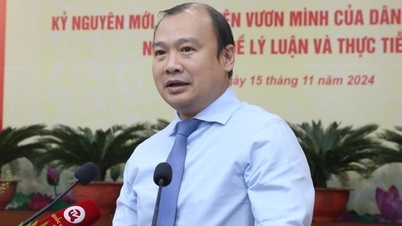




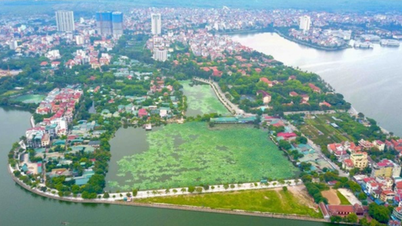

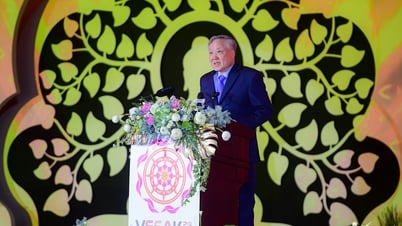
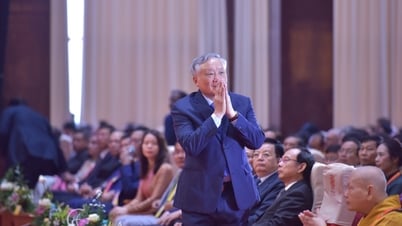
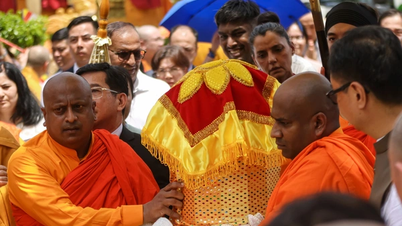
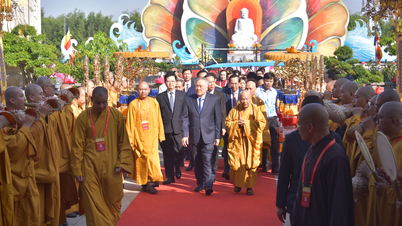
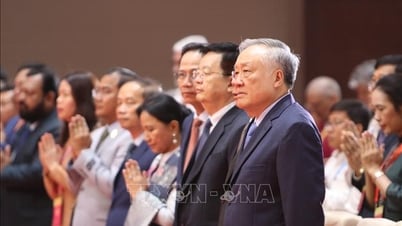
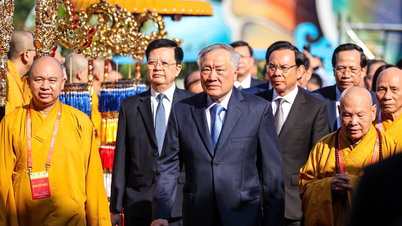











































![[Photo] Prime Minister Pham Minh Chinh talks on the phone with Singaporean Prime Minister Lawrence Wong](https://vphoto.vietnam.vn/thumb/402x226/vietnam/resource/IMAGE/2025/5/8/e2eab082d9bc4fc4a360b28fa0ab94de)

















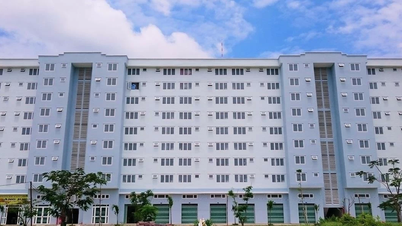












Comment (0)